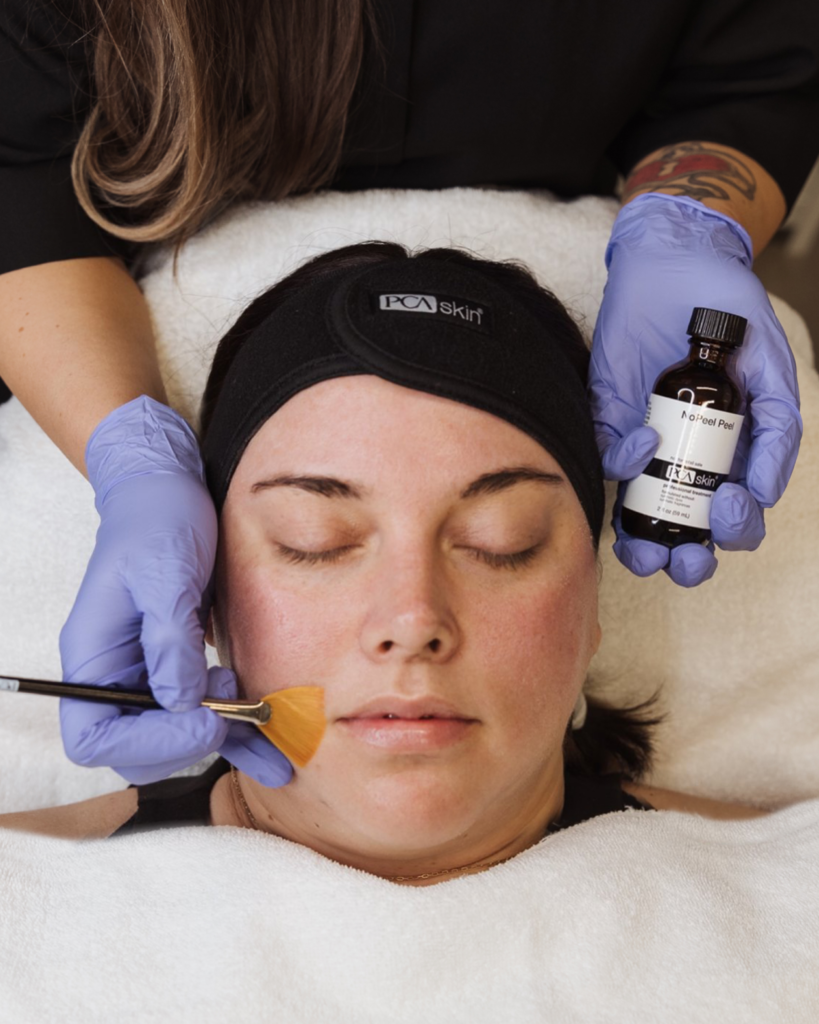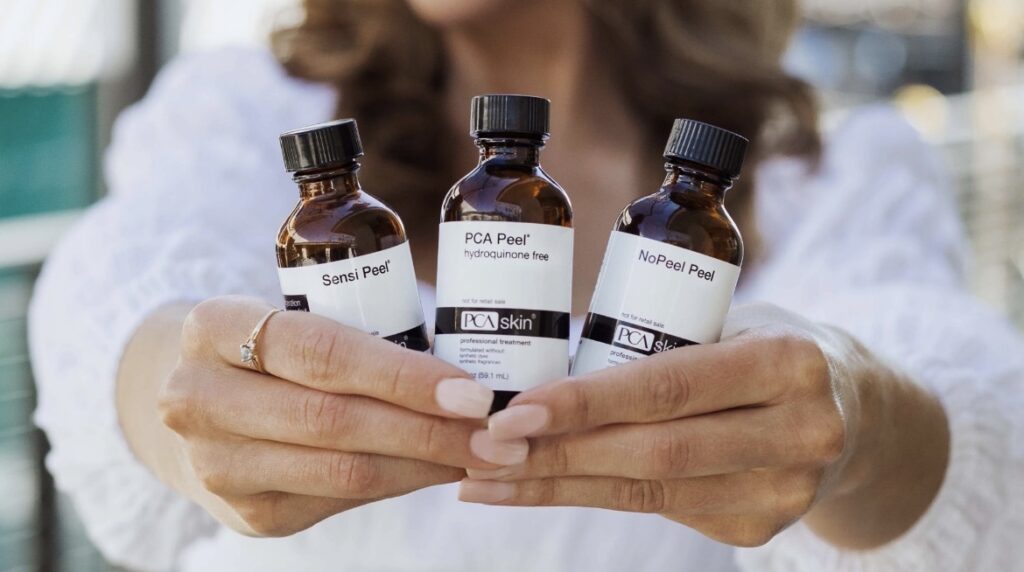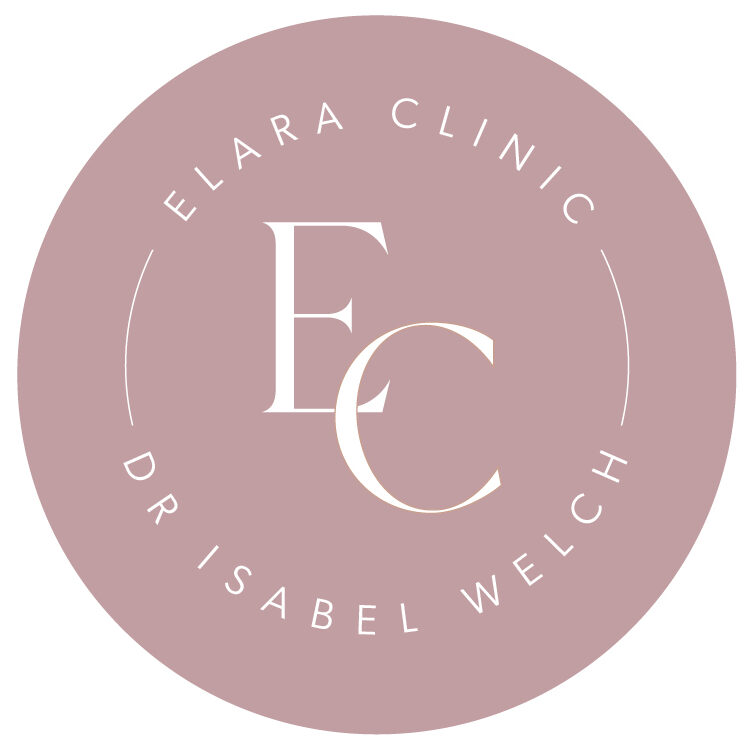
What are chemical peels and how do they work?
Chemical peels are a way of deeply exfoliating the skin which in turn, stimulates new skin cell growth and collagen production, with more evenly distributed melanin. The new skin that grows has improved surface texture and appearance. They typically contain acids and enzymes which remove the sun damaged, thicker, outer layers of dead skin without the need for abrasive damaging gritty scrubs.
Often, a single treatment will revive skin but sometimes a course of peels is required to achieve optimal results.
Who are chemical peels good for?
Chemical peels can be used the face, neck and most places of the body, but are most commonly used on the face and backs of hands.
In general, chemical peels are used to:
- Smooth skin
- Brighten skin
- Reduce blemishes
- Reduce pigmentation
- Reduce fine lines
- Improve the appearance of age spots
- Reduce acne scarring

Who are chemical peels NOT suitable for?
Almost everyone can have a skin peel as there are many different levels of peels and protocols which can be tailored to your needs, be it gentle for delicate skin or a more progressive peel for the robust skins. Generally, chemical peels do not have a big impact upon pore size or saggy, lose skin. There are other treatments for these concerns such as microneedling and polynucleotides as well as energy devices.
You may not be suitable for a chemical peel if you:
- have a history of problems with skin scarring, particularly keloid scarring
- have certain skin pigment issues, or are taking medications that can make the skin photosensitive
- have skin cancer in the area to be treated
- have warts or an active skin infection in the area to be treated
- have had any other recent abrasive treatment
- have shaved or recently exfoliated or waxed the area in the previous seven days
- darkly pigmented skin maybe unsuitable for deeper peels due to the heightened risk of hyperpigmentation
- have been taking isotretinoin in the last 12 months
How do you prepare for a chemical peel?
- 1 week prior to your treatment, stop using skin products containing vitamin A derivatives, unless directed by your practitioner.
- 1-2 weeks prior to your treatment, avoid exfoliating facials, waxing, hair removal creams, laser hair removal, electrolysis and sunbathing/sunbed use.
- 24 hours prior to your treatment, stop using exfoliating products including those containing alpha and beta hydroxy acids.
What happens during a chemical peel?
Your face is first cleansed thoroughly. The peel is applied to the skin with a soft brush or cotton pads, depending on the acid used and how well you tolerate the sensation you may have a second application. You may feel warmth during initial application. A fan may be used if you feel it is too tingly.
Your skin will then be moisturised and protected with a high SPF sunscreen. Sometimes a targeted skin mask can be applied before the peel to address certain concerns such as dehydration, excess oil or dull skin.
What should you expect after a peel?
Peels are generally washed off after 10h. You should cleanse your face very gently with a soap-free cleanser, patting the skin dry with a towel. Ensure you moisturise your skin well with any products your practitioner advises.
2-4 days after your treatment you may experience peeling although not everyone does. Your skin may feel tight, dry and uncomfortable or you may experience tenderness, tingling, itching or stinging with the stronger peels. DO NOT PICK OR PEEL YOUR SKIN as tempting as it may be! You can stick the flaking areas down gently with gentle moisturiser until they naturally disappear .
Wear a high SPF sunscreen for at least 6 weeks post-treatment. This will reduce the risk of hyperpigmentation.
Avoid strenuous activity for 24 hours after your treatment, and avoid saunas, steam rooms and hot showers until your skin is healed.
Do not have any other facial treatments, waxing, laser or electrolysis for at least 1 week after the peel or until the skin has healed.
Avoid strong chlorinated water for 14 days.
Cold sores – if you are susceptible to cold sores, you may find you have an outbreak after a chemical peel. To help prevent this, taking a course of antiviral medicine as advised by your practitioner beforehand may be advised.
Prices
PCA Advanced Perfecting Peel £100
PCA Pigment Correct Peel £100
Course of 3 Peels £270 with free after peel support kit
PCA Medi Facial £65
